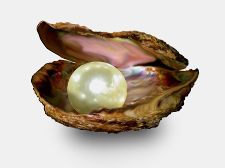The Uses of Business
Charity in a businessman
Matthew 13:45-46. Again, the kingdom of the heavens is like a man, a merchant, seeking beautiful pearls, who, finding one very precious pearl, went away and sold all that he had, and bought it.
AC 2967:7. That a “merchant” is one who procures for himself knowledges of truth and good, and from them intelligence and wisdom, is evident from the Lord’s words in Matthew [above]. The “beautiful pearl” is charity, or the good of faith.
Charity 167. Charity in a Man of Business. If he looks to the Lord and shuns evils as sins, and transacts his business sincerely, justly, and faithfully, he becomes charity. He acts as from his own prudence, and yet trusts in the Divine Providence. He is therefore not despondent in misfortune nor elated with success. He thinks of the morrow, and yet does not think of it. He thinks of what should be done on the morrow and how it should be done, and yet he does not think of the morrow, because he ascribes the future to the Divine Providence and not to his own prudence. Even his prudence he ascribes to the Divine Providence.
He loves business as the principal of his vocation, and money as its instrumental; and does not make money the principal and business the instrumental, as very many of the Jews do. Thus, he loves his work, which is in itself a good of use, and not the means rather than the work. He does not indeed so distinguish between them, but still they are thus distinguished when he looks to the Lord and shuns evils as sins. For he shuns avarice, which is an evil and the root of many evils.
He loves the common good while loving his own good, for the common good lies hidden within his own good. It is like the root of a tree, which conceals itself in the earth, but from which the tree grows and blossoms and bears fruit. Not that he gives to it of his own beyond what is due. But the fact is that the public good is also the good of his fellow-citizens. Indeed, the public good arises from the good of his fellow-citizens, whom he loves, from the charity of which he is a form.
No one can know the secrets of charity within himself, for he cannot see them; but the Lord sees them.
CL 266:4. I asked [two angels], “How can anyone know whether he performs uses from a love of self or from a love of uses? Everyone, both good and evil, performs uses, and he does them because of some love. Suppose that there were in the world a society composed only of devils, and another society composed only of angels. I think the devils, moved by the fire of their love of self and the splendor of their own glory, would perform as many uses in their society as the angels would in theirs. Who can know, therefore, from what love and from what origin uses flow?”
CL 266:5. To this the two angels replied, “Devils perform uses for the sake of themselves and their reputation, in order to be advanced to honors or gain wealth. Angels, on the other hand, do not perform uses on that account but for the sake of the uses themselves and from love of them. Man cannot distinguish between these uses, but the Lord sees the difference. Everyone who believes in the Lord and shuns evils as sins performs uses from the Lord. But everyone who does not believe in the Lord and does not shun evils as sins does uses from himself and for the sake of himself. This is the difference between uses done by devils and uses done by angels.”
Questions and Comments
- How do you find the balance between trusting in Providence and acting as if everything depended upon yourself? Like a duck on a pond, seeing the far shore and knowing he’ll get there, yet still having to paddle like heck underneath?
- Evil must be shunned first. Think of examples where shunning was not done first. What happened?
- “No one can know the secrets of charity within himself,” but what can he know? See especially CL 266:5 at the end.
- We know that the Lord in His second coming is not anti-Semitic—just the opposite. How can we understand this and similar references to the Jews? Do you have Jewish heredity? Even if not, do you have avaricious tendencies? Consider how sharply Jehovah criticizes the Jews in the Old Testament, and what the Lord says of Christians in the Heavenly Doctrine, such as “the worst adulterers.”
| previous |  |
next |
|---|


